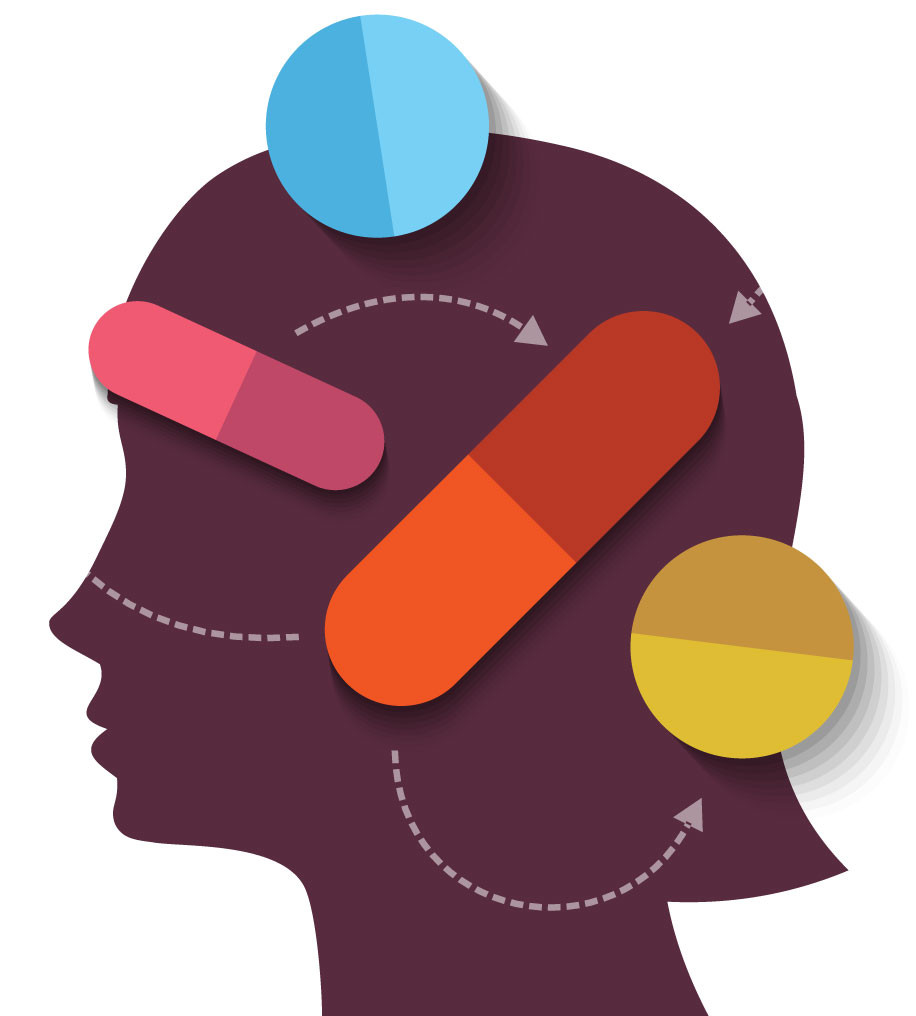
Can white noise really help you sleep better?

Celiac disease: Exploring four myths

What is prostatitis and how is it treated?

What is Cushing syndrome?

Exercises to relieve joint pain

Think your child has ADHD? What your pediatrician can do

Foam roller: Could you benefit from this massage tool?

Stepping up activity if winter slowed you down

Common causes of cloudy urine

Dragon fruit: How to enjoy this antioxidant-rich fruit
Alzheimer's Disease Archive
Articles
A blood test may predict increased risk for Alzheimer’s disease
5 tips to help you age well
The book of neurogenesis
Sleeping five hours or less may raise dementia risk
Is it dementia or something else?
Many cases of memory loss aren't related to dementia, but stem from other, treatable conditions.
You've been forgetting things lately — your keys, or maybe names. Sometimes you struggle to find the right word in conversations or repeat yourself to others. You may worry: are these signs of dementia?
If this sounds like you, you're not alone. Many people find their way into Dr. Tammy Hshieh's office wondering the same thing. But most of the time, it's not dementia causing their problems, says Dr. Hshieh, a geriatrician at Harvard-affiliated Brigham and Women's Hospital and Dana-Farber Cancer Institute and assistant professor of medicine at Harvard Medical School.
Staving off dementia when you have mild cognitive impairment
The shift from this condition to dementia is not necessarily inevitable.
Image: © gradyreese/Getty Images
Will I get dementia? That common question takes on urgency if you have mild cognitive impairment (MCI), a slight but noticeable change in memory and thinking skills. But the progression from MCI to dementia is not automatic. In fact, MCI is not always permanent. "It depends on the underlying cause," says Dr. Joel Salinas, a neurologist at Harvard-affiliated Massachusetts General Hospital.
What are the causes of MCI?
MCI is not dementia (see "What is dementia?"), but it's not normal thinking, either. It often stems from disease or treatments for disease, including
Two types of drugs you may want to avoid for the sake of your brain
Two common classes of drugs have been linked to dementia. Fortunately, there are alternatives to both.
Image: Thinkstock |
If you're worried about developing dementia, you've probably memorized the list of things you should do to minimize your risk—eating a healthy diet, exercising regularly, getting adequate sleep, and keeping your mind and soul engaged. In addition, some of the drugs you may be taking to help you accomplish those things could increase your risk of dementia. In two separate large population studies, both benzodiazepines (a category that includes medications for anxiety and sleeping pills) and anticholinergics (a group that encompasses medications for allergies and colds, depression, high blood pressure, and incontinence) were associated with an increased risk of dementia in people who used them for longer than a few months. In both cases, the effect increased with the dose of the drug and the duration of use.
These findings didn't come entirely as a surprise to doctors who treat older people. The Beer's List published by the American Geriatrics Society has long recognized benzodiazepines, antihistamines, and tricyclic antidepressants as potentially inappropriate for older adults, given their side effects. Such drugs are on the list because they share troubling side effects—confusion, clouded thinking, and memory lapses—that can lead to falls, fractures, and auto accidents.
Six steps to cognitive health
So how do you keep your brain healthy, stay cognitively fit, and build your cognitive reserve? It's easier for some people than for others. And though genetics set the stage for your brain health, you can do something to improve your brain health and cognitive fitness.
First it is important to remember that you need a healthy body to have a healthy brain. Therefore, ensuring your brain health depends upon regularly seeing your doctor, following her or his recommendations, and managing any health conditions you have.
Protect your brain from stress
Stress management may reduce health problems linked to stress, which include cognitive problems and a higher risk for Alzheimer's disease and dementia.
Image: © iMrSquid/Getty Images
It's not uncommon to feel disorganized and forgetful when you're under a lot of stress. But over the long term, stress may actually change your brain in ways that affect your memory.
Studies in both animals and people show pretty clearly that stress can affect how the brain functions, says Dr. Kerry Ressler, chief scientific officer at McLean Hospital and professor of psychiatry at Harvard Medical School. Scientists have seen changes in how the brain processes information when people experience either real-life stress or stress manufactured in a research setting. (For the latter, researchers might challenge subjects to perform a difficult task, such as counting backward from the number 1,073 by 13s while being graded.) Either type of stress seems to interfere with cognition, attention, and memory, he says.
Forgetfulness — 7 types of normal memory problems
Forgetting things? Memory problems are more common than you think
It's normal to forget things from time to time, and it's normal to become somewhat more forgetful as you age. But how much forgetfulness is too much? How can you tell whether your memory lapses are normal forgetfulness and within the scope of normal aging or are a symptom of something more serious?
Healthy people can experience memory loss or memory distortion at any age. Some of these memory flaws become more pronounced with age, but — unless they are extreme and persistent — they are not considered indicators of Alzheimer's or other memory-impairing illnesses.

Can white noise really help you sleep better?

Celiac disease: Exploring four myths

What is prostatitis and how is it treated?

What is Cushing syndrome?

Exercises to relieve joint pain

Think your child has ADHD? What your pediatrician can do

Foam roller: Could you benefit from this massage tool?

Stepping up activity if winter slowed you down

Common causes of cloudy urine

Dragon fruit: How to enjoy this antioxidant-rich fruit
Free Healthbeat Signup
Get the latest in health news delivered to your inbox!
Sign Up











